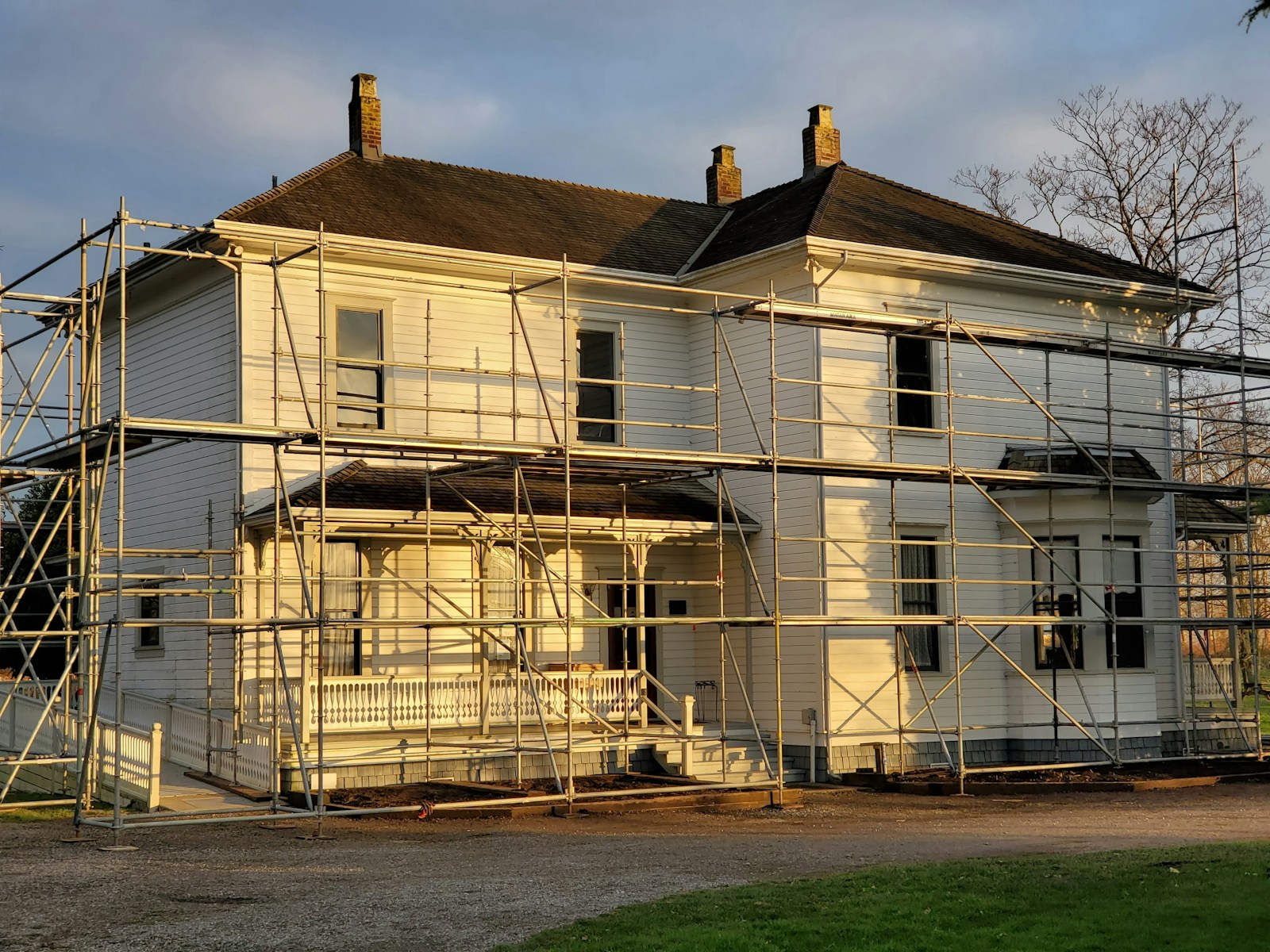Navigating the world of property investment can feel like you’re lost in a maze. It’s not just about buying a property and hoping for the best. There are different types of property investors each with their unique strategies and goals.
You might be curious about what these types are, aren’t you? After all, knowing who you’re up against in the market can give you a competitive edge. From the hands-on fixer-uppers to the strategic long-term investors, we’ll explore the various types and what motivates them.
So, whether you’re a seasoned investor or just dipping your toes into property investment, this insight will certainly add value to your investment journey. Let’s get started, shall we?
Hands-on Fixer-Uppers
The hands-on fixer-upper investor represents a distinct type of property investor. With a keen eye for potential and an attraction to the tangible, these investors acquire properties that may not catch the average buyer’s eye. What seems like a dilapidated old house or a run-down apartment complex to others is, for these investors, a canvas waiting for transformation. These investors typically possess a repertoire of skills beyond just knowledge of property markets. They’re usually pretty good with their hands, having abilities in basic carpentry, plumbing, painting or even more in-depth areas like renovation and restoration. They aren’t afraid to roll up their sleeves and get their hands dirty, personally addressing and overseeing the property’s issues. There’s a satisfaction in the hands-on process, an intimate familiarity that develops with every project, and a certain thrill in the transformation from shabby to chic. The perks that come with being a fixer-upper investor are many. For starters, dilapidated properties generally come cheap, leaving room for substantial profits after renovations. Additionally, the control one exerts over the renovation process gives more power to mold the property according to market needs. Careful cost control and project management can further increase profit potentials. Here’s the scoop:
- Fixer-upper investors buy properties that need work
- They personally handle most or all the repairs and renovations
- Renovated properties are sold or rented out at higher prices
Don’t get it wrong — it’s not an easy job being a hands-on fixer-upper. It takes time, effort, and an understanding of both property markets and practical repairs. They often deal with unexpected issues that arise during the renovation phase, timing considerations, as well as the challenge of staying within the budget. But for those who relish the challenge and enjoy the process of transformation from beginning to end, being a fixer-upper investor is significantly rewarding. There’s a distinct allure to being a fixer-upper investor, but it’s important to carefully weigh the benefits against the potential challenges that might come your way.
The Passive Investor
- Market Dependence: Properties may be subject to market fluctuations affecting your returns.
- Less Control: As you’re not directly managing the property, unexpected issues might pop up.
- Higher Initial Investment: Typically, well-managed properties come at a steeper price. Recognizing these challenges can give you a head-start in preparing for them and shaping your investment strategy. Where the fixer-upper investor may see a dilapidated property with potential, you, as a passive investor, might see an opportunity in a well-run turnkey asset. Rooting your investment strategy in your lifestyle, strengths, and risk tolerance can contribute significantly to your road to successful property investing. Whether you’re a hands-on, fixer-upper investor, or a time-lean passive investor, understanding the intricacies of the chosen path holds the key. While this is true, let’s not forget the importance of room for adaptability as market dynamics shift. Navigation is all about being on your toes and, more importantly, staying ahead of the curve.
The Short-Term Flipper
While the passive investor often appeals to the play-it-safe crowds, there’s another breed of property investor that thrives on adrenaline and rapid change. Enter The Short-Term Flipper. This individual is all about fast action and high rewards, perfect for those who love a good challenge.
The Short-Term Flipper’s strategy is simple yet demanding: buy low, sell high, and do it quickly. You’re purchasing a property that’s usually in need of some TLC, fixing it up as fast as possible, and selling it off for profit. It’s a high-intensity, hands-on approach. With much skin in the game, it comes with substantial risk, but the potential for high returns is appealing.
Some key aspects differentiate a Short-Term Flipper from other types of investors:
- Time Commitment: Fixing up a property isn’t a walk in the park. It demands massive time and energy, so ensure you’re ready to roll up your sleeves.
- Market Knowledge: You need to understand which upgrades add the most value to a property, the cost of repairs, and how to price a flipped property to attract buyers.
- Risk Tolerance: A sudden market downturn can leave you with a property that’s hard to offload. It’s crucial to understand your risk tolerance before diving in.
- Financial Management: Money management skills are essential. Funds can quickly run out if not effectively managed, potentially turning a seemingly profitable project into a money pit. Ultimately, being a successful Short-Term Flipper isn’t solely about having deep pockets or top-notch handyman skills; it’s about strategic decision-making, understanding the market dynamics, and being able to swiftly navigate through challenges.
The Long-Term Investor
Moving on from the high-octane world of the Short-Term Flipper, let’s talk about The Long-Term Investor. This individual takes a slower, steadier approach to property investment. Unlike the flipper who’s interested in a quick turn-around, the long-term investor’s strategy mainly involves building wealth over an extended period.
As a long-term investor, your focus is less about the market’s daily fluctuations and more about the long-term prospects of your investments. It’s a play-it-safe kind of approach, but it’s won many an investor a comfortable retirement or a nice nest egg.
One primary distinguishing factor of a long-term investor is patience. You’re not chasing instant rewards. You’re building a portfolio of properties that’ll appreciate in value over the years. You’re investing in real estate for the sustained capital growth potential and rental yield.
If you’re comfortable with sitting on an investment and waiting, long-term investing might be your kind of thing. You’re eyeing the finish line from the very start, knowing that every step and decision you make now will eventually pay off. Another characteristic often found in long-term investors is their thorough research and planning skills. You’re more about the numbers, the rental yields, the vacancy rates, the historic price trends. You’re often the type to consult professionals, conduct meticulous sort of homework before making an investment. Finally, you need a robust financial management system. Unlike a short-term flipper who’s concerned more about swift returns, a long-term investor needs to manage finances meticulously to maintain the portfolio over the long haul. With a thoughtful strategy, conservative approach, patience, and strong financial management, you might find yourself succeeding as a long-term investor. These folks aren’t in the game for quick cash; they’re in it for capital growth and a constant stream of passive income. And while there’s undoubtedly more waiting involved, the pay-off can be sizable and secure. Enjoy the journey, not just the destination, and you might just find the long-term investment strategy suits you just fine. Without a doubt, the right kind of investor will always find success, whether they’re flippers, buy-and-hold investors, or anybody in between. Keep on learning and adapting your tactics to suit your changing needs and the shifting market realities. Real estate investing is, after all, a marathon and not a sprint.
Conclusion
You’ve journeyed through the landscape of property investing, understanding the different types of property investors. You’ve seen how the Long-Term Investor operates, focusing on slow and steady wealth accumulation. You understand the importance of patience, research, planning, and financial management in this strategy. It’s clear that while the rewards might take time, they’re often sizable and secure. More importantly, you’ve learned the essence of adaptability in real estate. As market realities fluctuate, so should your tactics. This adaptability, coupled with your chosen investment style, can set you on the path to success in property investing. Remember, there’s no one-size-fits-all approach. It’s about finding what works for you, and making it work well. So, get out there and start your property investing journey today.
Frequently Asked Questions
What is a long-term investor in property investment?
A long-term investor in property investment is a person who invests in real estate with a long-term perspective. This approach primarily focuses on amassing wealth over an extended period through property appreciation and rental yield.
What are the characteristics of a long-term investor?
Long-term investors in property typically exhibit patience, perform thorough research and planning, and have strong financial management skills. All these attributes contribute to successful and profitable long-term investing.
What is the key strategy of a long-term investor?
The main strategy of a long-term investor is investing in properties that are likely to appreciate in value over time and generate a stable rental yield. This approach allows them to build wealth over a sustained period.
Why might one choose to be a long-term investor?
The choice to become a long-term investor often comes down to the potential for large, secure returns. Although the pay-off may take longer to realize as compared to short-term investing, the stability and potential for sizable gains make it an appealing choice for many.
Are the investment tactics of a long-term investor flexible?
Yes, flexibility is key when investing in property long-term. Market conditions and personal needs may change over time, hence long-term investors frequently adapt their investment tactics to suit these fluctuations.




